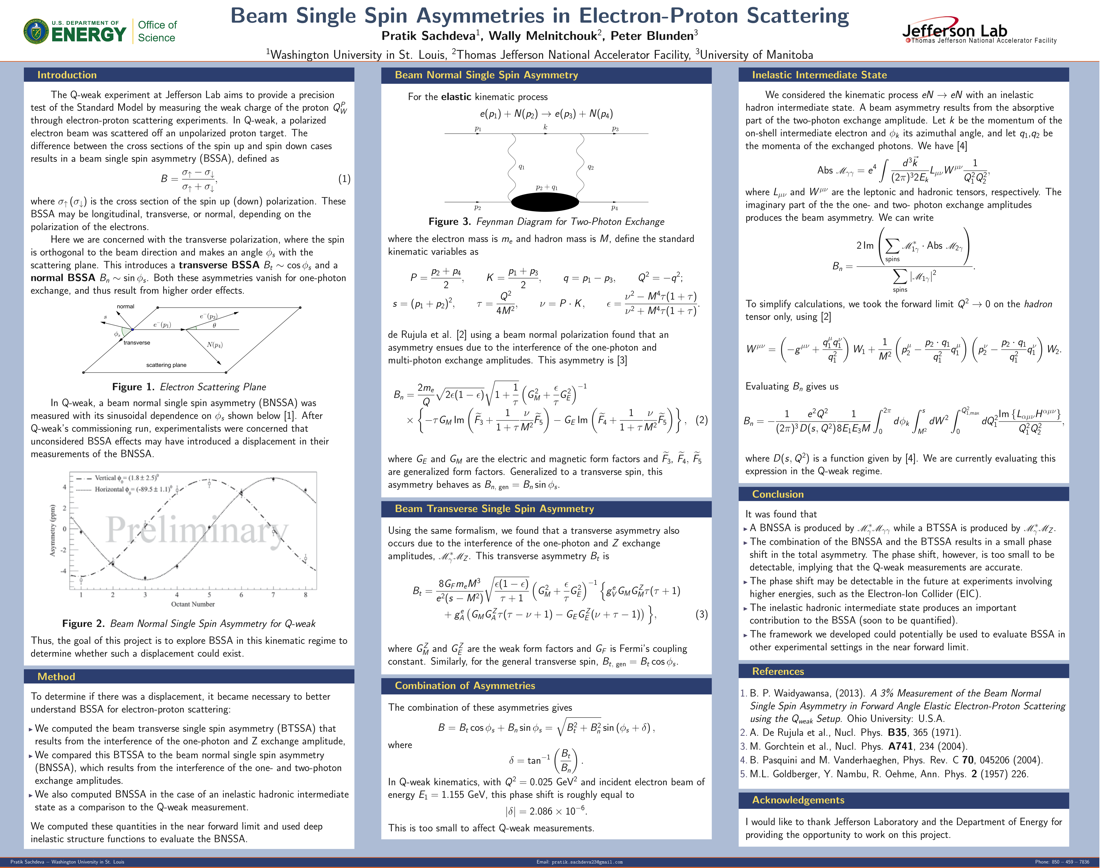Undergraduate Research at Jefferson Lab
Beam Single Spin Asymmetries in Electron-Proton Scattering
Student: Pratik Sachdeva
School: Washington University in St. Louis
Mentored By: Wally Melnitchouk and Peter Blunden
The Q-weak experiment at Jefferson Lab aims to provide a precision test of the Standard Model through electron-proton scattering. In Q-weak, a polarized electron beam was scattered off an unpolarized proton target. The difference between the cross sections of the spin up and spin down cases results in a beam single spin asymmetry (BSSA), which may be longitudinal, transverse, or normal, depending on the polarization of the electrons. There was concern that unconsidered BSSA effects may have introduced a displacement in the measurements of the BSSA. To determine if there was a displacement, we computed the beam transverse single spin asymmetry (BTSSA) that results from the interference of the one-photon and Z exchange amplitudes and compared this to the beam normal single spin asymmetry (BNSSA), which results from the interference of the one- and two-photon exchange amplitudes. It was found that the combination of the BNSSA and the BTSSA results in a phase shift too small to be detectable, implying that the Q-weak measurements for the BNSSA are accurate. The framework we developed could potentially be used to evaluate BSSA in other experimental settings in the near forward limit.

Citation and linking information
For questions about this page, please contact Education Web Administrator.
